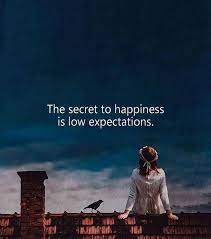Rajni Shaleen Chopra
One Burhan took to the gun to protest what he calls the forced subjugation of Kashmir. The same gun, through its torturous twists and turns, was used by three teenaged boys to kill the other Burhan and his father, a former militant.
Burhan Wani, 21, is the new face of Kashmiri militancy, a top Hizbul Mujahideen commander whose ultimate goal is to “unfurl the flag of Islam on Delhi’s Red Fort”. In a recent audio widely circulated on the social media, he spoke to his followers in chaste Kashmiri. He told them of how proud he is that his name is in the hearts of the youth, especially those fighting against India.
Burhan Bhat, killed when he was only three years old, is the new face of Kashmir’s misfortune. The toddler’s tongue had just started imbibing the sweetness of Kashmiri. Perhaps his family delighted in the ways he called out his Mouj, Moul, Bub and Ded (mother, father, grandfather, grandmother). Perhaps his mother sang lullabies to him in chaste Kashmiri. His name now echoes in the hearts of the young and old who cry for Kashmir.
What merciless irony, that the meaning of the Arabic word ‘Burhan’ is proof, evidence. Both Burhans are indeed evidence of all that Mauj Kasheer, Mother Kashmir has lost. They are proof of all that is wrong with Kashmir.
Burhan Wani, the darling of his parents, scored over 90 per cent in Class 8. Less than two years later, he tore himself apart from his Khane Moul – the loving embrace of his father – to take to the gun. He now symbolizes the Kashmiri youth who are ready to embrace death in their quest for “freedom”.
Burhan Bhat, also the darling of his parents, refused to let go of his Khane Moul. News reports say that Burhan Bhat was in his father’s arms. The teenaged boys who shot Bashir Ahmed Bhat tried to tear away Burhan from his father’s arms. The little Burhan would not let go. The toddler’s only instinct was to cling to his father.
Burhan Bhat did not want to embrace death. He did not even know what freedom is, or what death is. But death embraced him. The bullets pierced through both him and his father. And the whole of Kashmir cries.
Are these bullets piercing only through a man called Bashir Ahmed Bhat and a boy called Burhan? Are they not piercing through Kashmir’s soul too?
The death of Aylan Kurdi, the three-year-old Syrian’s lifeless body, lying face-down on a coast, shook the whole world. Aylan Kurdi made the European stakeholders rewrite their migrant settlement policy.
Will Burhan Bhat’s lifeless body, lying face-up in a hospital in Kashmir, make the stakeholders in the Kashmir issue rewrite the Valley’s tortured tale?
Hurriyat Chairman Syed Ali Geelani is crying for Burhan. Jammu and Kashmir’s Chief Minister Mufti Mohammed Sayeed is crying for Burhan. Perhaps the Hizbul Mujahideen chief cried for him. Perhaps Burhan Wani too cried for him.
Will these tears wash the blood from Kashmir’s lacerated last three decades and change the course of its history? Or will the Valley witness in tired resignation a new Burhan Wani and a new Burhan Bhat every couple of years?
Albert Einstein had said, “We cannot solve our problems with the same thinking we used when we created them.” From where will that thinking come which will break this relentless cycle of the two Burhans?
Till September 18, if you took the name Burhan in the Valley, Kashmiris knew you were referring to the young armed militant heading Kashmir’s militant movement. Now, a little three-year-old has been bracketed with the face in the frame. Burhan Wani and Burhan Bhat join the dots of Kashmir’s mournful tale.
Graveyards are places where the old and enfeebled, who have lived boisterous and joyful lives, are buried amid peaceful chants in the name of Allah. Graveyards are not the place where lads and little boys with glowing, fresh, happy faces are to be buried with wails rising up to the blue skies of Allah.
The whole world knew of Aylan Kurdi. Maybe even India does not know of Burhan Bhat. Maybe India does not know of Burhan Wani either.
But the powers that rule over our fates, the powers that decide our destinies – those powers must know the two Burhans. The two Burhans span the melancholic history of Kashmir. The powers that rule our fates must feel this pain in their souls.
History is not simply a dead account of what happened. History is a dynamic story of all that is happening in our lives today. History is the story of those men and women who know how to change the course of the rivers of destiny and fate.
History can be written in blood, but for generations after, that makes for an anguished reading. Popular American novelist Chuck Palahniuk says we will be remembered more for what we destroy than what we create. May the powers that rule the destiny of Kashmir be remembered more for what they create, and not for what they destroy.




